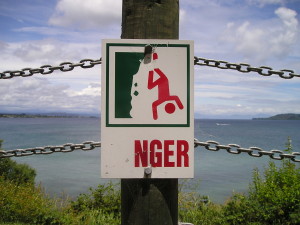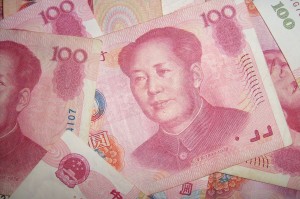Since July 2013, Chinese authorities have been conducting a series of raids and investigations into foreign pharmaceutical companies active in China, for allegedly corrupt activities involving soliciting and bribing doctors and other healthcare personnel. Ronan Diot, Senior Associate with Norton Rose Fulbright, examines the current situation, and provides practical advice for European companies operating in China on how to make sure that they are fully complying with Chinese law and don’t get caught out.
The current anti-corruption investigations taking place are probably the most comprehensive anti-corruption enforcement actions taken by Chinese authorities so far, with several dozens of employees (including senior management) being detained; the actual investigations have been taking place for more than six months. It is anticipated that these investigations will turn into an industry-wide crackdown and will possibly extend to other sectors. At the time of writing, the oil and gas sector also appears to be one of the targets.
These investigations should not come as a surprise to well-informed foreign investors since they are in line with the strict anti-corruption campaign advocated by the new Chinese Government since it took office in March 2013.
How can international businesses ensure and demonstrate that they are doing their best to limit bribery and corruption in the Chinese market, where anti-corruption authorities are becoming increasingly aggressive and inquisitive? What immediate actions need to be taken and what controls need to be put in place to achieve healthier business practices?
Below we provide ten points to consider for executives who want to make sure that their company’s commitment to ethical business lives up to the expectations of regulators, in China and elsewhere.
1. Assess the risks
 No matter how developed your China compliance organisation is, assume that it could be better and conduct a thorough assessment of the bribery risks faced by your company. Are your staff more likely to be on the giving or receiving end of bribery? Which business departments are most at risk? What horror stories have you heard about your competitors? How can you be assured that these scenarios will not happen to you? A complete risk assessment will be the first step you need to take. It may be worth considering hiring a comprehensive external advisory team to help.
No matter how developed your China compliance organisation is, assume that it could be better and conduct a thorough assessment of the bribery risks faced by your company. Are your staff more likely to be on the giving or receiving end of bribery? Which business departments are most at risk? What horror stories have you heard about your competitors? How can you be assured that these scenarios will not happen to you? A complete risk assessment will be the first step you need to take. It may be worth considering hiring a comprehensive external advisory team to help.
2. Get the basics right
Has your company put in place the minimum compliance structure required for its operations in China? Have you established and regularly updated practical gifts and entertainment policies, procurement policies, and rules on conflicts of interest? When is the last time the actual implementation of these policies and rules was reviewed? Are you conducting training on these issues so that employees follow the policies in practice and do you assess your employee’s level of understanding and commitment to business ethics? Do all your contracts have anti-bribery provisions with corresponding termination rights? Does your M&A due diligence process have a compliance element? There are easy-to-follow checklists available to make sure that you have not missed an important step. We strongly advise you to follow them.
3. Compliance in the digital age
Compliance can sometimes be counter-intuitive. While lawyers always advocate keeping hard copies of  documents, paper-based compliance processes can become a liability as they are prone to tampering and may be difficult to analyse. Digitalised approval and record processes are much more difficult to tamper with and cannot be easily destroyed. They also give you better control over your general expenses and per-client spending and can help you limit the risk of fraud. Talk your IT providers to upgrade your customer relations management (CRM) and expenses systems to incorporate compliance tools.
documents, paper-based compliance processes can become a liability as they are prone to tampering and may be difficult to analyse. Digitalised approval and record processes are much more difficult to tamper with and cannot be easily destroyed. They also give you better control over your general expenses and per-client spending and can help you limit the risk of fraud. Talk your IT providers to upgrade your customer relations management (CRM) and expenses systems to incorporate compliance tools.
4. Rotate people
Allowing the same employees to stay in the same role for too long can be a mistake that many employers make, often out of a legitimate feeling that the employees are the best for their job. Even though this may be the case, the lack of rotation creates ‘little kingdoms’ which can present severe compliance risks, especially in sales, procurement and finance. Rotate people regularly — and if they deserve it, promote them.
5. Get the ‘tone from the top’ right
‘Tone from the top’ is often hailed as the holy grail of compliance. Like many other items on this list, it is only useful if it is genuine and sincere. How often do you engage with your senior management in China on compliance and anti-bribery issues? When was the last time you had a transparent discussion with your senior China sales managers on the impact of corruption on their business? How confident are you that the message flows down at all levels? If you let your employees conclude that compliance is just being paid lip service by headquarters, ‘tone from the top’ becomes an empty phrase.
6. Build up your compliance organisation
Empowered and engaged compliance officers will be your best line of defence against corruption and questionable business practices. If they are bullied or manipulated by the business, this line of defence collapses. Make sure they are regularly trained and that they have the right level of access to senior management, particularly in the headquarters. Do not forget ‘face’ issues in China — defend your compliance officers’ role in front of their colleagues.
7. Use your network
No matter how difficult it is to follow the compliance road in China, you can be sure of one thing: your competitors are facing the same challenges. This is one of the fields where engaging with competitors and industry peers can actually pay off. Compliance officers in your organisation should endeavour to regularly meet their counterparts in the industry to share knowledge and strategies (but in doing so they should be careful not to breach PRC antitrust laws).
8. Spend the money
 The main difference between a real compliance programme and one that does not work? Cost. Doing the right thing costs money. However, there are things you will be able to streamline and over the long term investment into compliance systems will pay off. But there is no doubt that integrity and business ethics come at a cost — the cost of being more selective when appointing distributors, the cost of maintaining a compliance team and the cost of training staff and hiring properly qualified third-party consultants. The implementation of good business ethics may also mean losing business opportunities. In the long run, however, those organisations which have been fined hundreds of millions by regulators would agree that this cost is well worth it.
The main difference between a real compliance programme and one that does not work? Cost. Doing the right thing costs money. However, there are things you will be able to streamline and over the long term investment into compliance systems will pay off. But there is no doubt that integrity and business ethics come at a cost — the cost of being more selective when appointing distributors, the cost of maintaining a compliance team and the cost of training staff and hiring properly qualified third-party consultants. The implementation of good business ethics may also mean losing business opportunities. In the long run, however, those organisations which have been fined hundreds of millions by regulators would agree that this cost is well worth it.
9. Sales strategy: think again
If your sales strategy heavily relies on third parties (authorised distributors and other types of dealers), how confident are you that these third parties understand and share the ethical values and the business conduct rules set out in your Code of Conduct? Have your sales staff turned into distributor managers who cannot sell your products on their own and are dependent on sometimes obscure third parties? What exact value have these third parties provided and why does your company need them? As part of your risk assessment, revise your sales strategy to eliminate obvious areas of risk.
10. Gift-giving culture
“China is different”, “China has a gift-giving culture”. These phrases used to be the alpha and omega of the compliance approach to China. And yet, China can change and is changing. The political articulation of a more stringent approach and the increasing number of investigations by Chinese authorities is testament to this. Gifts to your tax inspector are out of the question in any country, no matter how ‘different’ that country is supposed to be. Naturally, successful international businesses adapt themselves to local customs. However, when the local custom runs against the local law, follow the local law.
Ronan Diot is a Senior Associate with Norton Rose Fulbright, and has been calling Beijing home for the past six years. He regularly assists foreign companies with their investments in the PRC, especially in highly-regulated sectors such as financial institutions, technology, telecoms and agriculture. He is also a specialist in compliance and anti-bribery, having led many internal investigations, risk assessment exercises and assisted foreign companies with the development of their compliance programmes and trainings.
Norton Rose Fulbright is a global legal practice, providing the world’s largest corporations and financial institutions with a full business law service. Norton Rose Fulbright has more than 3,800 lawyers based in over 50 cities across Europe, the United States, Canada, Latin America, Asia, Australia, Africa, the Middle East and Central Asia.



Recent Comments